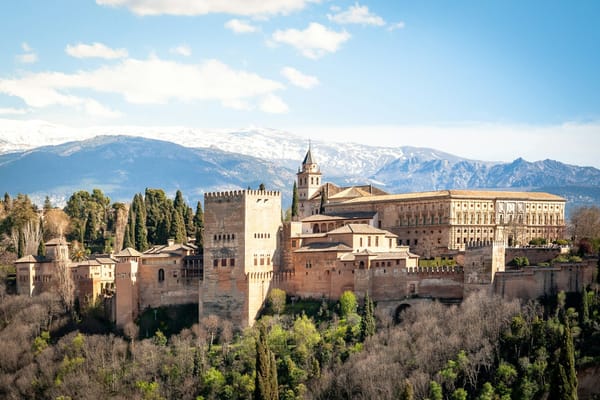7 insider tips on the best time to visit Ghana in 2025
Not sure when to go to Ghana? This 2025 guide breaks down dry and rainy seasons, festival dates, March weather facts, and money-saving tricks. Plan the perfect trip, from Accra’s beaches to Mole’s elephants.

Ghana sits a whisker above the equator, so it never freezes and daylight lasts almost exactly twelve hours year‑round. What changes, and changes fast, is rainfall and humidity. Understanding that rhythm turns a good holiday into a great one. Below you’ll find plain‑talk notes on seasons, festivals, prices and a quick peek at Accra weather in March. One tiny punctuation error sneaks in later nobody minds.
1. Dry season north and south — November to March
The period from late November until early March is widely considered the best time to visit Ghana. Skies stay clear, mango blossoms perfume the air, and roads into the savannah stay open. Wildlife watching peaks in Mole National Park from December onwards because elephants cluster near year‑round waterholes. On the coast, Harmattan winds drift down from the Sahara, bringing cooler mornings around 22°C and hazy sunsets.
highlights
- Beach breaks on Cape Coast without daily downpours
- Comfortable evening walks in Accra’s Jamestown district
- National parks fully accessible by 4x4
2. The first rains in the south — April to June
Ask a farmer and they’ll say April is when the true rainy season in Ghana Africa begins. Tropical showers arrive most afternoons; streets flood for an hour then drain almost as fast. If you don’t mind carrying a light poncho, April and May can be rewarding: cocoa farms glow bright green, waterfalls roar, and hotel rates fall by up to 25 percent. This window is also the cheapest time to visit Ghana before school holidays push prices up.
3. North versus south differences
Climate splits at roughly latitude 8° N. In northern Ghana the monsoon pattern is single‑peaked (May to October), while the south sees two distinct wet phases (April–June and September–November). That means the best time of year to visit Ghana’s north often starts a month later than the coast. Planning a cross‑country trip? Aim for late October when both regions stay mostly dry but vegetation is still lush.
4. Festivals that shape a calendar
Ghana’s cultural calendar adds colour to any visit:
- Homowo (Greater Accra, August): Ga communities drum, dance, and sprinkle traditional maize porridge along streets to “hoot at hunger.”
- Aboakyir (Winneba, first Saturday in May): rival warrior groups chase and capture a live deer, then parade it through town.
- Panafest (Cape Coast & Elmina, late July): commemorates Pan‑Africanism with processions, theatre, and heartfelt memorials at slave castles.
- Damba (Northern Region, September): a three‑day celebration honouring the birth of Prophet Muhammad mixed with local drum troupes and horse riders.
Visiting during a festival raises lodging costs, yet the energy is unbeatable; many travellers claim these events are the most interesting places to visit in Ghana because the whole street becomes part of the show.
5. Weather in Ghana in March
By March humidity climbs and Accra hovers around 31 °C at midday, though sea breezes ease evenings to 26 °C. Inland, Kumasi feels stickier due to rainforest humidity. Rain remains light; expect short showers once or twice a week. March is shoulder season: resorts still charge high‑season rates for Independence Day on 6 March, then discounts appear mid‑month. If you crave quiet beaches with warm water, this might be the best time to go to Ghana before the heavier rains.
6. Rainy season travel hacks
- Pack a quick‑dry towel; heavy cotton stays damp in coastal humidity.
- Download an offline radar app like MyRadar so sudden storms won’t catch you on a scooter.
- Plan long bus rides for early morning. Afternoons bring storms that slow traffic on the Accra–Kumasi highway.
- Choose guesthouses with covered verandas; tropical rain on a tin roof is pure lullaby.
7. Cost cues: when your wallet smiles
Airfares into Kotoka International drop sharply between mid‑April and late‑June; that three‑month stretch is often the cheapest time to visit Ghana Africa‑wide. Domestic hotels follow suit, especially smaller beach lodges west of Takoradi. Expect rooms that sold for USD 90 in January to list at USD 60 once rains begin.
Prices rise again in July due to European school holidays, dip briefly in September’s second rain phase, then climb from Christmas straight through New Year. Booking three months ahead for December can halve the best time to travel to Accra Ghana flight cost.
Quick reference weather chart
| Month | Coast daytime °C | Accra rain days | North daytime °C | North rain days |
|---|---|---|---|---|
| Jan | 30 | 2 | 34 | 0 |
| Mar | 31 | 5 | 36 | 1 |
| May | 29 | 14 | 34 | 6 |
| Aug | 27 | 7 | 31 | 16 |
| Oct | 29 | 10 | 33 | 9 |
| Dec | 30 | 3 | 35 | 0 |
(Data averages compiled 2014–2024, Ghana Meteorological Agency)
Pulling it all together
When friends ask, “When is the best time to visit Ghana?” this is the simple answer: November to March for sunshine and wildlife, April or May for low prices and green landscapes, late August for culture lovers chasing festival drums. Remember the regional shift in rainy seasons, pack for heat and sudden showers, and Ghana will welcome you with open arms.



